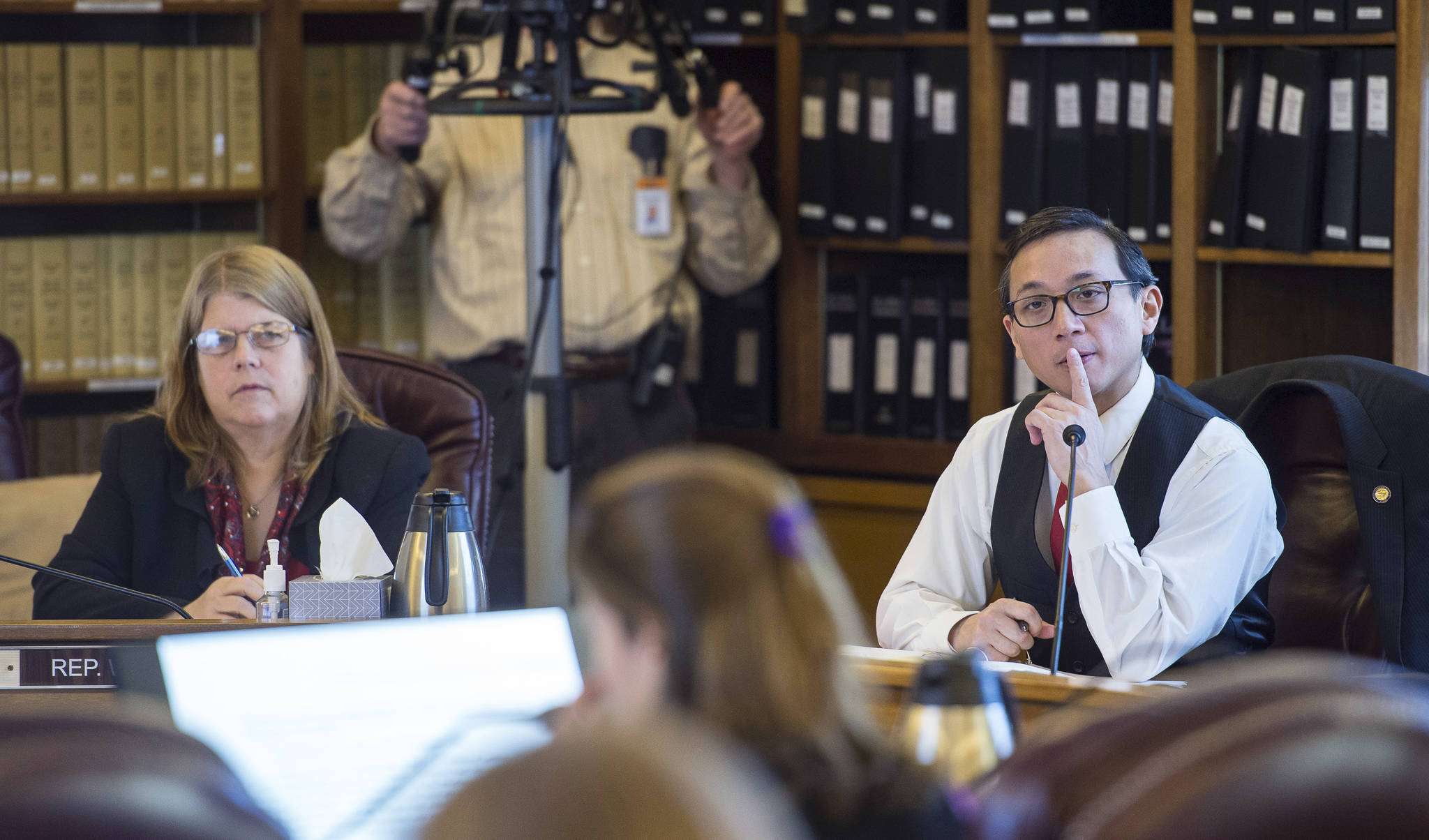As the Alaska House of Representatives advances toward a vote on Senate Bill 54, lawmakers are missing one critical piece of information: the price tag.
In a Wednesday afternoon hearing, members of the House Finance Committee were told that no one exactly knows how much SB 54 will cost if it becomes law. The last estimate, $4.3 million per year, was drafted more than seven months ago. Since then, the House Judiciary Committee has modified the bill, and the finance committee is expected to make more changes when it begins considering amendments at 10 a.m. today.
“Finding out after the bill passes what this does is too late,” said Rep. Tammie Wilson, R-North Pole. “We’re going to need real numbers, and we can’t wait to get the numbers until it gets to the floor. That’s not fair to us or our constituents.”
In 2016, lawmakers approved Senate Bill 91, a sweeping revision of Alaska’s criminal justice system. The main drive behind SB 91 was to cut costs, and when lawmakers passed SB 91, they were told it would save the state $21.1 million per year by reducing the number of people in Alaska’s prisons. By promoting alternatives to prison, such as drug treatment and probation, and by reducing the number of people who return to prison on new crimes, the state might eliminate the need to build another prison, lawmakers were told.
Now that the Legislature is considering a partial or total rollback of that bill, those savings will be reduced or eliminated altogether.
“I do think there is going to be a cost to it, and I don’t like indefinite fiscal notes,” said Rep. Scott Kawasaki, D-Fairbanks, as he pressed Dean Williams, corrections commissioner for the state, to provide a better estimate.
Williams, speaking by phone in Wednesday’s hearing, resisted that pressure.
“We do not have enough data, even with the current changes, to determine what it might be,” Williams said. “I just really felt after much debate and much toiling … that we could only give an extremely broad range.”
According to a fiscal analysis provided to the House Finance Committee, passing SB 54 will add between 108 and 285 more people in Alaska’s jails.
“There is not sufficient data at this time to determine the actual impacts to the prison population,” according to the analysis.
Based on the average cost per inmate, that means Alaskans would pay between $1.6 million and $4.3 million more per year under SB 54.
The Department of Corrections, according to information provided at Wednesday’s hearing, will bear most of the cost burden of SB 54. The departments of law, public safety and health and social services all said there would be no fiscal impact on them.
While Williams had no hard figures on the fiscal effects of amendments passed last month by the House Judiciary Committee, he told Kawasaki that the decisions are driving costs “north, not south.”
Last year, with SB 91 reducing the number of prisoners in the custody of the Department of Corrections, Williams closed the prison in Palmer. Its remaining prisoners were transferred to other prisons.
Wilson asked Williams whether that prison might have to reopen under SB 54.
“I’ll know more when I sense where the final bill lands,” Williams said.
Rep. Les Gara, D-Anchorage, summarized the day’s testimony bluntly.
“This bill is going to cost us a few million dollars. Public Safety costs money. Let’s not pretend it doesn’t,” he said. “We’re going to have to hire more people because we have more people in prison.”
Correction: The first version of this story incorrectly identified the political party of Rep. Scott Kawasaki, D-Fairbanks.
• Contact reporter James Brooks at james.k.brooks@juneauempire.com or call 523-2258.

